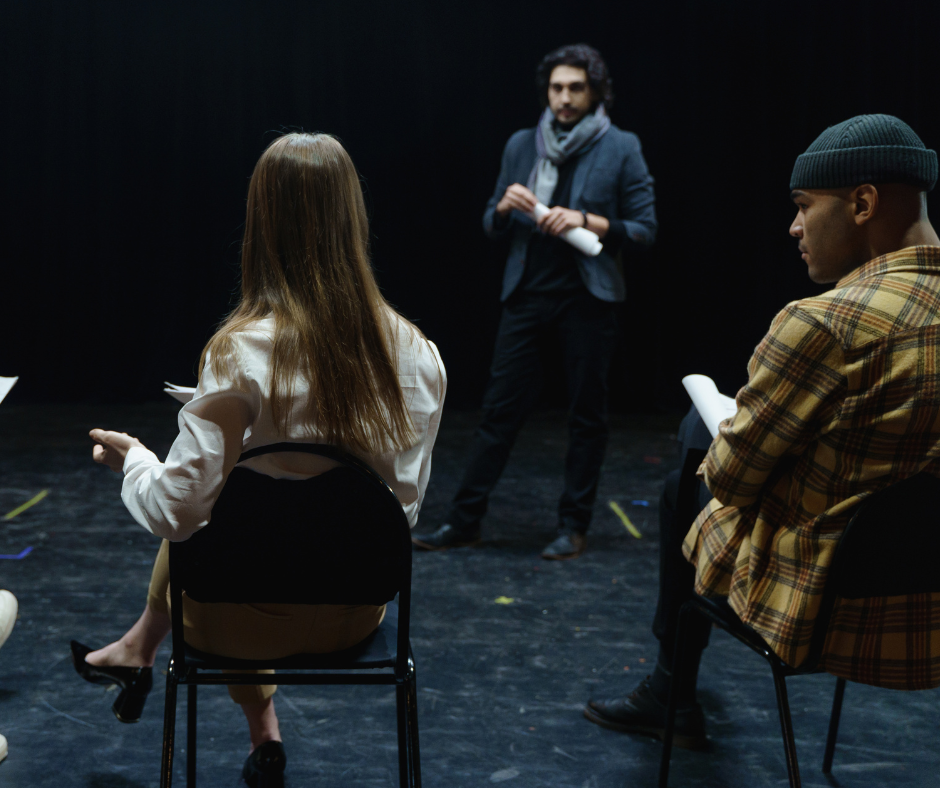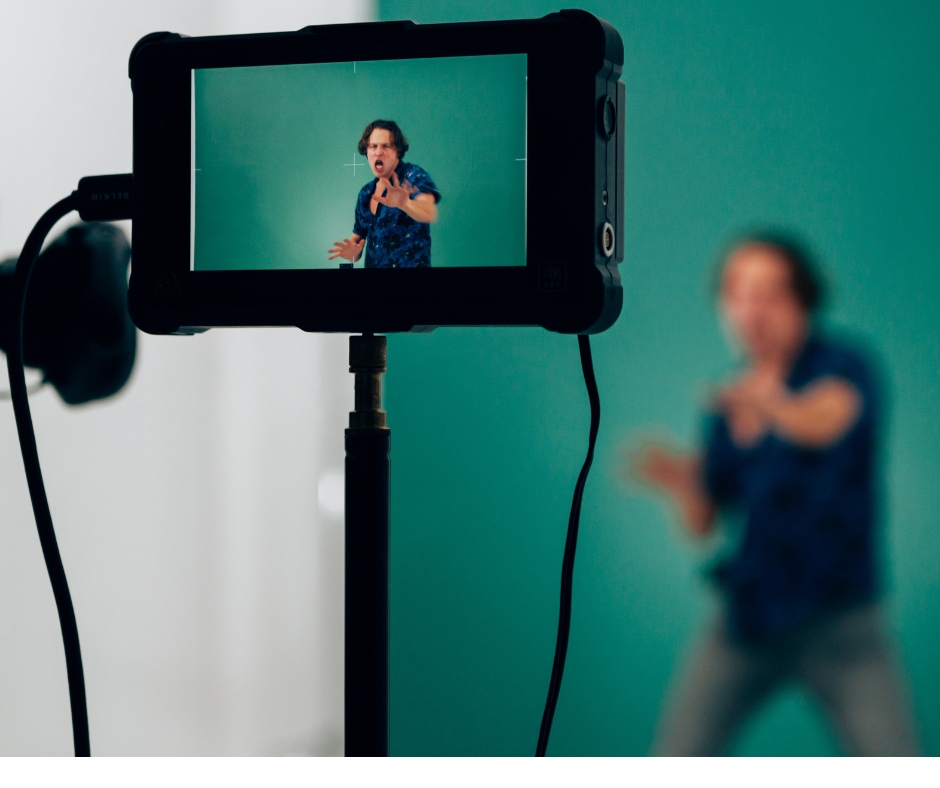FOR THE ARTICLE ON “PHONE ETIQUETTE ON SET“, CLICK HERE!
A salient difference between acting on camera and acting in a play is the amount and type of rehearsal time for actors. For a play, you can usually rely on a good four to six weeks of rehearsal time and in-depth conversation with the director and other cast members as you learn the scenes, build the character, experiment, perform run-throughs, and grow the play together. For film and some television, you can count on one or two read throughs with the full cast and possibly a couple days or a week of scene work and discussion with the director. Not as hearty as a theatre rehearsal process, but it’s something.
However, for most TV shows and almost all commercial projects, the rehearsal process is absurdly condensed often into a matter of minutes. Generally speaking, rehearsals for actors who book a co-star or guest role on a TV show or a principal role on a commercial happen in the course of shooting. You show up to set (off book), get through hair and makeup, then, if you’re lucky, the director does a blocking pass for the cameras with the cast in their positions and then you are doing it.
This blend of rehearsing while filming happens for a few reasons. Commercial and TV productions crave efficiency; time is money and creating separate sessions to rehearse a TV show or commercial equals more money. And most clients/networks are not going to approve that plan. Artistically speaking, there is also a premium on spontaneity in all on-camera work; you would be shocked at the number of times a “happy accident” makes it into the final cut of a commercial or film. So, when you’re looking to capture lightning in a bottle, it follows that sometimes those first raw moments where everyone is still a bit fumble-y and fresh are truly golden.
As a result, rehearsal for these kind of projects are often disguised as the first few takes of a scene and will be recorded just in case they’re use-able and great. From the first take to the last take you are learning, adjusting, and refining that performance—and that whole journey is being filmed. Obviously, that’s a seismic shift in rehearsal paradigm for a performer coming from a theatre background and it’s no wonder that transition can take some time for actors as they adjust to the realities of working on-camera.
But as you begin to get more opportunities as an actor and more experience, anticipating the mode of rehearsal you will be in on a project is a main key to success. I have often heard veteran ASC instructor and actor Janelle Snow (take her classes!) ask her students this question: How is your preparation serving you? It’s an absolutely essential examination. Different projects have different rehearsal processes and require different modes of preparation from actors. When you can anticipate the process, you can prepare for it. And when you prepare well, that work allows you to be truly confident, present, and playful in the moment.
-Matt Miller is a director and occasional instructor at ASC.




